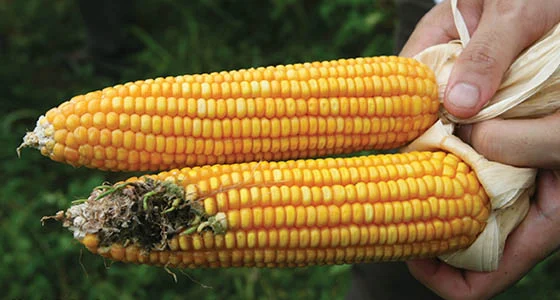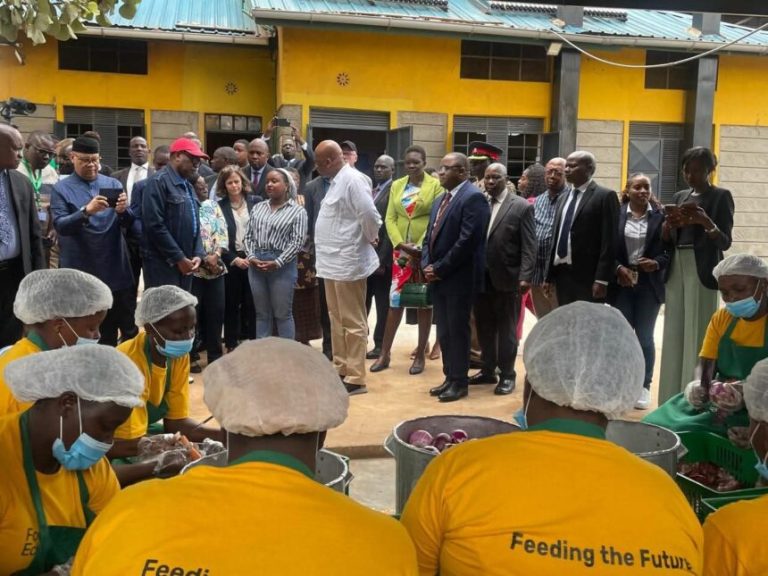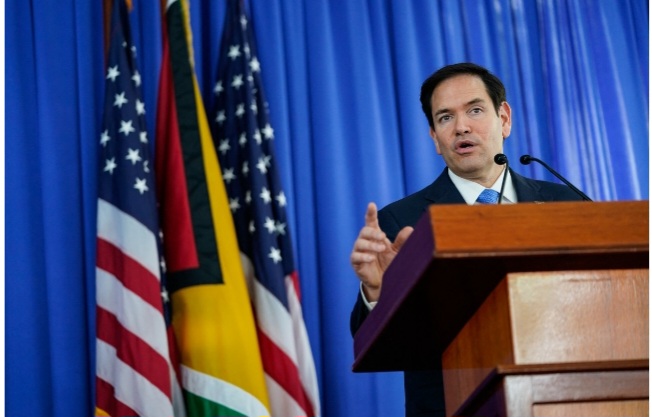Activists Warn of Corporate Control Over Kenya’s Food Systems Amid Ongoing GMO Debate
Share this:
- Click to share on Facebook (Opens in new window) Facebook
- Click to share on WhatsApp (Opens in new window) WhatsApp
- Click to share on X (Opens in new window) X
- Click to share on Telegram (Opens in new window) Telegram
- Click to share on LinkedIn (Opens in new window) LinkedIn
- Click to share on Threads (Opens in new window) Threads
- Click to email a link to a friend (Opens in new window) Email

Environmental and food sovereignty advocates are sounding the alarm about the increasing influence of multinational agribusiness companies over Kenya’s food systems. Despite a recent court ruling that upheld the ban on Genetically Modified Organisms (GMOs), these groups are concerned that corporate interests may still find ways to exploit policy loopholes to reintroduce GMOs in the country.
At a press conference, Greenpeace Africa, the Biodiversity and Biosafety Association of Kenya (BIBA Kenya), and other civil society groups raised their concerns, stressing that the fight over GMOs is far from over. They warned that multinational corporations could manipulate seed policies, jeopardizing Kenya’s agricultural biodiversity and making farmers dependent on expensive, patented seeds.
While the High Court’s decision to uphold the GMO ban was seen as a victory for food sovereignty, activists argue that corporate influences will continue to play a role. They warned that restrictive seed laws, particularly those aligned with international agreements like UPOV 91, could strip farmers of their right to save and share seeds. This would result in farmers being forced to buy new seeds each season, further increasing their financial strain.
Ann Maina, the National Coordinator of BIBA Kenya, stated, “This ruling reaffirmed what we have been saying all along—GMOs are not about feeding Kenya; they are about controlling Kenya’s food system.” Activists are concerned that if corporations succeed in enforcing stricter seed patent laws, it could have severe consequences for food diversity, affordability, and the independence of Kenyan farmers.
A key seed litigation case is set for May, and its outcome could reshape Kenya’s agricultural future. If multinational corporations manage to push through stricter seed patent laws, activists worry that food production could become monopolized, reducing options for farmers and exacerbating food security concerns.
Elizabeth Atieno, Food Campaigner at Greenpeace Africa, cautioned, “This case is not just about farmers—it affects every Kenyan. When farmers lose control over seeds, we all lose access to diverse, healthy, and affordable food.”
In response, activists are calling for a shift towards agroecology, advocating for locally adapted, climate-resilient seed varieties rather than relying on imported GM seeds, which require expensive chemical inputs and could have detrimental environmental and health impacts.
As the legal battle over Kenya’s food policies progresses, civil society groups remain firm in their call for policies that prioritize the welfare of Kenyan farmers and consumers, not the interests of multinational corporations.








